Economy
Türkiye’s untapped $3.5T mining potential seen as key to narrowing trade gap
The mining sector carries strategic importance and could be seen as key to narrowing the trade deficit of Türkiye, which is yet to fully utilize its massive underground potential, according to industry representatives.
Türkiye recorded a foreign trade gap of $49.3 billion (TL 2.02 trillion) in the first half of the year, of which $20.8 billion stemmed from the mining and quarrying industry, according to data from the Turkish Miners Association (TMD).
“Türkiye’s underground potential is worth $3.5 trillion. It is unacceptable to run an annual trade deficit of $50 billion-$60 billion while leaving this potential untapped,” TMD President Mehmet Yılmaz said.
Although exploration licenses cover 7.7 million hectares across the country’s 78.3 million-hectare land area, actual operating licenses represent just one-thousandth of that total. On average, only one in every 200 exploration permits becomes an active mine.
Mining activity in forest areas accounts for only 0.1% of Türkiye’s total surface area, with rehabilitation and reforestation mandated by law. So far, around 11,325 hectares have been rehabilitated.
Yılmaz says mining should be a “locomotive sector” for Türkiye’s economy, citing developed countries such as the United States, Canada, Australia, Russia, China and India, where he says mining has historically played a central role in industrial development.
“Considering our underground potential, activating the mining sector is an inevitable and highly significant reality,” he noted.
Gold, boron, marble
Yılmaz underlined Türkiye’s global significance in several key resources, including gold, boron and marble.
The country holds 73% of the world’s boron reserves, though value-added production remains limited.
Exporting refined boron products to industries such as glass, fertilizer, batteries and defense could generate an additional $2 billion annually, said Yılmaz.
In marble, he said boosting sales of processed products rather than raw exports could add $1.5 billion in revenue.
“We are the world leader in boron. And we have branded products in the marble sector,” he added.
Türkiye’s gold reserves are estimated at about 5,000 tons, but could rise toward 10,000 tons with updated surveys, according to Yılmaz.
Critical role in green transition
Yılmaz also pointed to the role of critical minerals in the global energy transition.
“Lithium, graphite and rare earth elements are vital for producing electric vehicles, wind turbines and solar panels. The shift to green energy will require six to nine times more mining. We must mobilize this potential,” he said.
He noted that Türkiye has “strategic” reserves of lithium, silver, titanium, iron, manganese, zinc, copper and aluminum, which are resources crucial for defense, renewable energy and high-tech industries.
Emphasizing the rising demand for minerals driven by clean energy technologies, Yılmaz said: “An electric vehicle requires six times more minerals than a conventional car, while an offshore wind turbine uses 13 times more minerals compared to a natural gas power plant.”
He added that Türkiye’s target of adding 60 gigawatts of renewable energy capacity by 2035 will significantly increase demand for mining inputs.
Yılmaz emphasized that industrial dependence on foreign sources is “unacceptable.”
“Positioning mining against the environment and local communities is wrong. Any mining activity that prioritizes people and the environment within a framework of sustainability should be supported,” he said.
Addressing debates over mining in olive groves, Yılmaz said activities could proceed if international criteria and safeguards are met. “Olive trees are sacred, but just like industrial plants, housing projects, or highways can cause damage, mining too can be managed in a way that balances national interest,” he added.
He also highlighted misconceptions about mining in forest areas, noting that only 0.038% of forest land is used for mining. “Preventing the misuse of such misperceptions is in the nation’s best interest,” he said.
Economy
Spotify to open Türkiye office amid chart scrutiny, artist complaints
Spotify will establish a local office in Türkiye in 2026, Culture and Tourism Minister Mehmet Nuri Ersoy announced on Tuesday, a development that follows a formal investigation and mounting criticism from artists over the company’s chart compilation practices.
The office will address “an important deficiency” and strengthen collaboration between the music streaming giant and Turkish artists, Ersoy said on social media platform X.
The announcement came after Ersoy met with Spotify representatives in Ankara. He said concrete progress would soon be made to ensure Türkiye’s music ecosystem receives the support it deserves from Spotify.
The company has faced backlash from Turkish artists over what they describe as a lack of transparency in how its charts are compiled. Spotify has also been accused of censorship and preferential treatment.
Reports had also suggested Spotify launched an internal investigation into its editors in Türkiye following allegations of bribery linked to local charts, though the company later denied this.
Last month, the Turkish Competition Authority (RK) launched an investigation into “various allegations that the strategies and policies implemented by Spotify” in Türkiye have caused anti-competitive effects in the music industry.
The regulator said the probe would examine whether the Swedish company gave more visibility to some artists and engaged in unfair practices in the distribution of royalties, thereby violating competition law.

The company said its operations complied with “all applicable laws” but would cooperate with the investigation.
“Spotify will establish its office in Istanbul in 2026, deepening collaborations in this field,” said Ersoy. “We will sit down with company representatives and our music industry stakeholders to explore joint initiatives.”
The minister noted that Turkish artists achieved global success in 2024, reaching 2.8 billion new listeners and breaking records on international charts.
“Today, more than half of royalty revenues come from audiences outside Türkiye. This strong partnership will also support young talents and female artists, giving new momentum to our cultural diplomacy,” he added.
“We will continue working closely with the Spotify team on this and similar efforts to promote Türkiye’s rich musical heritage and culture worldwide.”
Spotify, which launched in Türkiye in 2013, says it paid over TL 2 billion (nearly $50 million) to the local music industry in 2024, calling its service “pivotal in growing Turkish artists’ royalties globally.”
Economy
Türkiye says to surpass $390B in goods, services trade by year-end
Türkiye is on track to achieve a new peak and exceed $390 billion (TL 15.95 trillion) in total foreign trade in goods and services this year, Trade Minister Ömer Bolat said on Tuesday.
That would mark a major upgrade from $375 billion in 2024 and compares to only $50 billion more than two decades ago, Bolat told an event in Istanbul.
Since the beginning of the year, Türkiye has added $1 billion to its exports every month, said the minister, adding that outbound shipments rose by 5.1% in the first seven months of this year.
“In 2002, Türkiye had $50 billion in exports. Today, we’ve reached $375 billion, and by year-end, we’ll surpass $390 billion,” Bolat noted.
He underlined the growing role of textiles and apparel, noting that in 2024 the sector generated $32.1 billion in exports.
Of this, $19.7 billion came from ready-to-wear and apparel, $9.4 billion from textiles and raw materials and $2.9 billion from carpets.
Together, these industries secured a 3.5% share of global exports, ranking Türkiye seventh worldwide and the European Union’s fourth-largest supplier, Bolat said.
Overall, Bolat cited the national income that reached $1.3 trillion last year and noted the economy’s continuous growth despite global challenges.
The government aims to lift the per capita income to $16,500-$17,000, the minister added. The income reached over $15,460 last year, according to official data.
“We will overcome challenges. As inflation declines, growth will accelerate in a stable environment.”
He predicted easing inflation in the period ahead would support financing conditions.
Inflation slowed to 33.5% in July, according to official data, the lowest rate since November 2021, having peaked at 75% in May last year.
Bolat said inflation has been declining for the past 14 months and said it would drop below 30% by the end of the year.
This, he said, along with declining interest rates, will make financing more accessible and support stronger export performance.
“With inflation falling into the 20s in 2026, access to financing will be easier and market stability will be firmly established,” he noted.
As disinflation continues, the Turkish central bank last month relaunched an easing cycle that was disrupted by political turmoil earlier this year, cutting its key policy rate by 300 basis points to 43%.
The bank had hiked the one-week repo rate to 46% from 42.5% in April and lifted its overnight lending rates to 49 % following market volatility over the arrest in March of Istanbul Mayor Ekrem Imamoğlu.
Imamoğlu was jailed pending trial over graft charges.
Before April, the bank had gradually cut its key policy rate from December as inflation eased.
“If global demand improves and the Russia-Ukraine war ends with a peace deal, we will see much brighter days for our economy,” said Bolat.
The minister highlighted government support for exporters, saying 60% of the ministry’s budget is allocated to incentives, including market access, trade fairs and sectoral trade delegations.
Economy
Türkiye says to hold 5G tender in October, eyes 2026 rollout
Türkiye plans to finalize the specifications for its long-awaited 5G frequency tender by the end of this month and hold the auction in October, with initial service expected to be available in 2026, Transport and Infrastructure Minister Abdulkadir Uraloğlu said Tuesday.
Uraloğlu’s remarks came days after the government published the list of frequencies to be allocated for usage rights in the 5G tender, with the minimum price for the available frequency packages set at $2.13 billion.
“We aim to publish the tender specifications this month and hold the tender in October. Our goal is to expand 5G across the entire country within a few years after the initial signal is received in 2026,” Uraloğlu said in a statement.
He noted that the ministry had held extensive consultations and examined international practices, particularly in Europe, to design the auction framework.
“We are preparing the tender specifications in a way that both serves the public interest and does not hinder operators’ investment capabilities or reflexes,” he said.
According to a presidential decree published in the Official Gazette on Saturday, the tender will include 11 frequency packages across the 700 MHz and 3.5 GHz bands, with individual package values ranging from $50 million to $425 million.
All three operators – government-controlled Türk Telekom and Turkcell along with Vodafone’s Turkish unit – are expected to take part in the tender.
The tender will also see the government roll over existing mobile network licenses, which are currently set to expire in 2029. Operators will be required to pay 5% of their yearly revenues to roll over the licenses.
The operators have long been preparing for the transition.
Last week, Türk Telekom said it is fully prepared for the 5G tender and rollout, citing its robust fiber infrastructure and strategic investments.
Its CEO Ümit Önal said 54% of the company’s long-term evolution (LTE) base stations are already connected via fiber.
Türk Telekom owns and maintains nearly 80% of Türkiye’s national fiber network through a concession agreement that is set to expire in 2026. Önal said the company is nearing the renewal of the deal.
Turkcell CEO Ali Taha Koç said the company has completed financial planning for the rollout. “A large part of our network has been modernized for the transition to 5G and the fiberization rate of our base stations has been rapidly increasing,” he said.
“We have also finalized our financial planning to integrate new base stations into our network,” he added.
Economy
Brits get limited relief as grocery inflation edges lower in August
Grocery inflation in Britain nudged down to 5.0% over the four weeks to Aug. 10, data from market researcher Worldpanel by Numerator showed on Tuesday, providing limited relief for consumers.
The figure, the most up-to-date snapshot of U.K. food inflation, compares to 5.2% in last month’s report. Official U.K. inflation data for July will be published on Wednesday.
Britain’s food retailers have said that increased employer taxes and regulatory costs as well as higher staff wages have added to the inflationary pressure of rising prices on many commodity markets.
“We’ve seen a marginal drop in grocery price inflation this month, but we’re still well past the point at which price rises really start to bite and consumers are continuing to adapt their behavior to make ends meet,” Fraser McKevitt, head of retail and consumer insight at Worldpanel, said.
He noted consumer trips during the three months to mid-July to casual and fast service restaurants were 6% lower than a year ago. But as consumers made savings outside the home, they sought treats in store.
Sales of branded grocery items were up 6.1% over the four weeks, while sales of own-label alternatives were up 4.1%. Among the fastest price rises were for chocolate, fresh meat and coffee and the fastest falls were in champagne and sparkling wine, dog food and sugar confectionery, Worldpanel said.
Trade body the British Retail Consortium, which represents Britain’s biggest retailers, has predicted food inflation will hit 6% by the end of the year, putting more pressure on household budgets in the run-up to Christmas.
The Bank of England (BoE) has forecast it will hit 5.5% before Christmas and then recede as it anticipates falls on commodity markets. Worldpanel said U.K. grocery sales grew 4.0% over the four-week period year-over-year, indicating sales volumes were down after inflation was taken into account.
Discounter Lidl and online supermarket Ocado were Britain’s fastest growing grocers over the 12 weeks to Aug. 10, with sales up 10.7%. Sales at industry leader Tesco rose 7.4%, with its market share up 0.8 percentage points over the year to 28.4%. However, number three player Asda struggled with sales down 2.6% and a 0.9 percentage points loss of market share year-over-year.
Economy
Air Canada reaches deal with flight attendant union to end strike
Air Canada’s unionized flight attendants reached a deal with the country’s largest carrier on Tuesday, ending the first strike by its cabin crew in 40 years that had upended travel plans for hundreds of thousands of passengers.
The union first announced the agreement early Tuesday after talks with Air Canada resumed talks late Monday for the first time since the strike began over the weekend and at the peak of the summer travel season.
Air Canada said it would gradually resume operations as of Tuesday evening and a full restoration may require a week or more, while the union said it has completed mediation with the airline and its low-cost affiliate Air Canada Rouge.
“The Strike has ended. We have a tentative agreement we will bring forward to you,” the Canadian Union of Public Employees (CUPE) said in a Facebook post, as the strike entered its fourth day.
The carrier had earlier offered a 38% increase in total compensation for flight attendants over four years, with a 25% raise in the first year, which the union deemed insufficient.
The flight attendants walked off the job on Saturday after contract talks with the carrier failed. They had sought pay for tasks such as boarding passengers, which are not remunerated. They are now paid for time when the plane is moving.
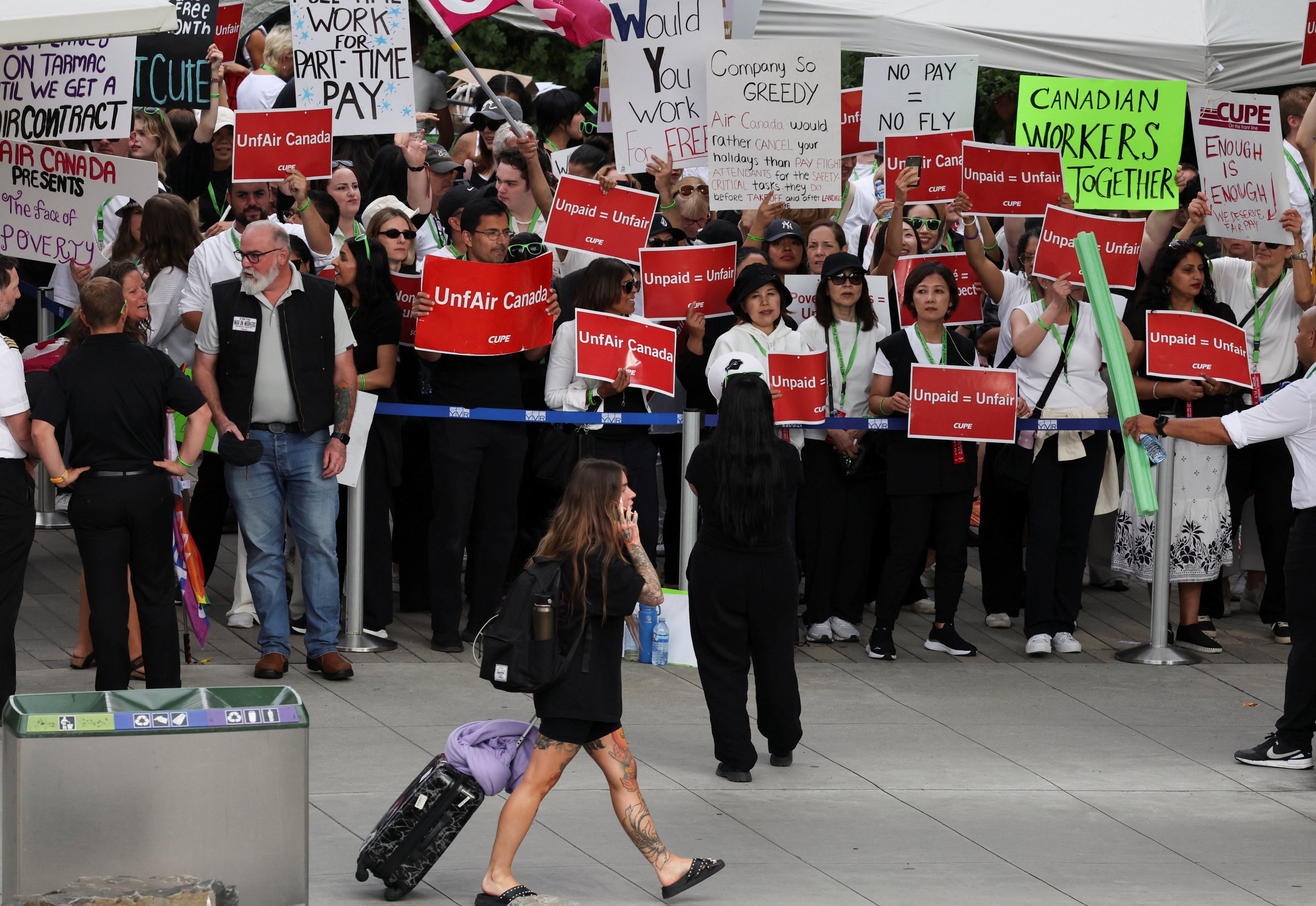
The CUPE, which represents Air Canada’s 10,400 flight attendants, wanted to make gains on unpaid work that go beyond recent advances secured by their counterparts at U.S. carriers like American Airlines.
“Unpaid work is over. We have reclaimed our voice and our power,” the union said in a statement. “When our rights were taken away, we stood strong, we fought back – and we secured a tentative agreement that our members can vote on.”
In a rare act of defiance, the union remained on strike even after the Canada Industrial Relations Board declared its action unlawful.
Their refusal to follow a federal labor board order for the flight attendants to return to work had created a three-way standoff between the company, workers and the government.
Labor leaders objected to the Canadian government’s repeated use of a law that cuts off workers’ right to strike and forces them into arbitration, a step the government took in recent years with workers at ports, railways and elsewhere.
Jobs Minister Patty Hajdu had urged both sides to consider government mediation and raised pressure on Air Canada, promising to investigate allegations of unpaid work in the airline sector, a key complaint of flight attendants who say they are not paid for work on the ground.
Flight attendants have for months argued new contracts should include pay for work done on the ground, such as boarding passengers.
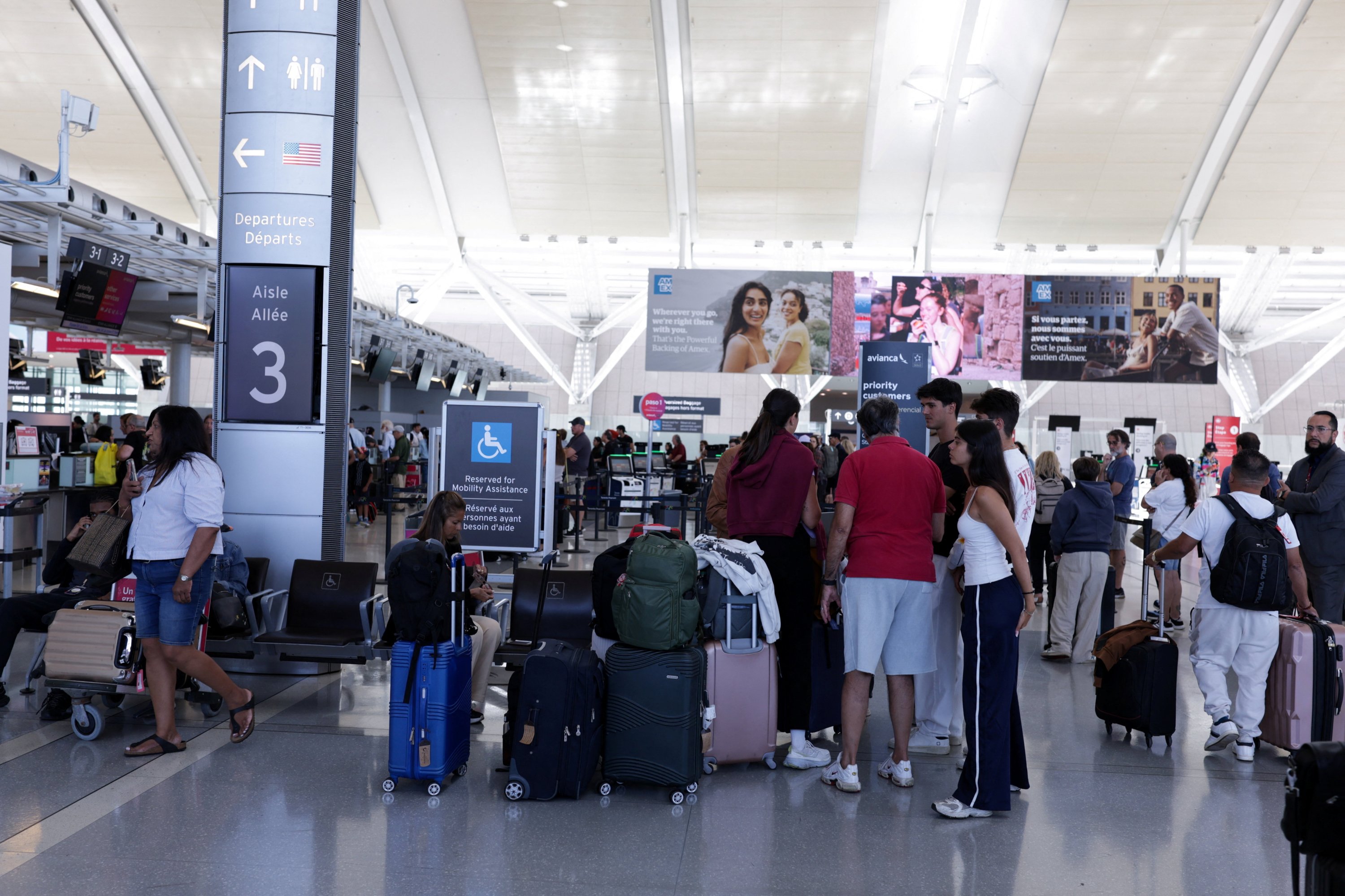
Air Canada operates around 700 flights per day. The airline estimated Monday that 500,000 customers would be affected by flight cancellations.
The carrier and its low-cost affiliate Air Canada Rouge normally carry about 130,000 customers a day. The airline is also the foreign carrier with the largest number of flights to the U.S.
Aviation analytics firm Cirium said that as of Monday afternoon, Air Canada had called off at least 1,219 domestic flights and 1,339 international flights since last Thursday, when the carrier began gradually suspending its operations ahead of the strike and lockout.
Passengers whose flights are impacted will be eligible to request a full refund on the airline’s website or mobile app, according to Air Canada.
Chief executive Michael Rousseau said restarting a major carrier is a complex undertaking. The airline said regular service may require seven to 10 days and some flights will be canceled until the schedule is stabilized.
“Full restoration may require a week or more, so we ask for our customers’ patience and understanding over the coming days,” Rousseau said in a statement.
Economy
Drought drains Türkiye’s Tekirdağ reservoirs, forces water curbs
A severe drought in Türkiye’s northwestern province of Tekirdağ has depleted the region’s main dams of potable water, straining infrastructure and leaving some households without supply for weeks amid a sharp nationwide drop in rainfall this year.
Authorities say drought is a critical issue, with several provinces warning of limited fresh water supply this summer.
Various areas in Izmir, Türkiye’s third-most populous province, have experienced frequent water cuts this month, while the municipality in the western province of Uşak was told over the weekend it would have access to water just six hours a day, with the main water reservoir depleted.
Rainfall slumped 71% in July across the country from a year ago, according to Türkiye’s Meteorological Service. In the Marmara region, which includes Tekirdağ and Istanbul, it shrank 95% below the monthly norm in July.
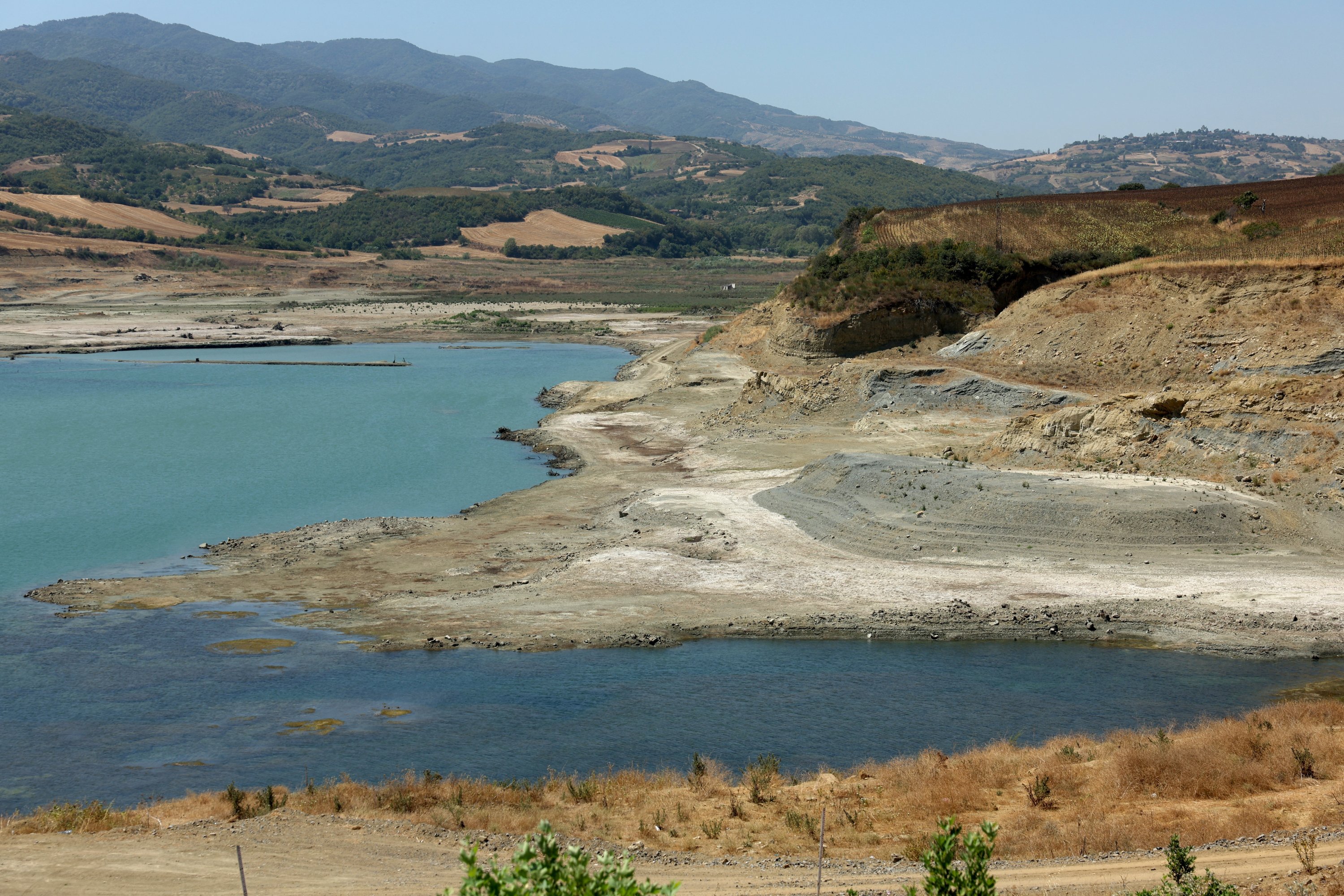
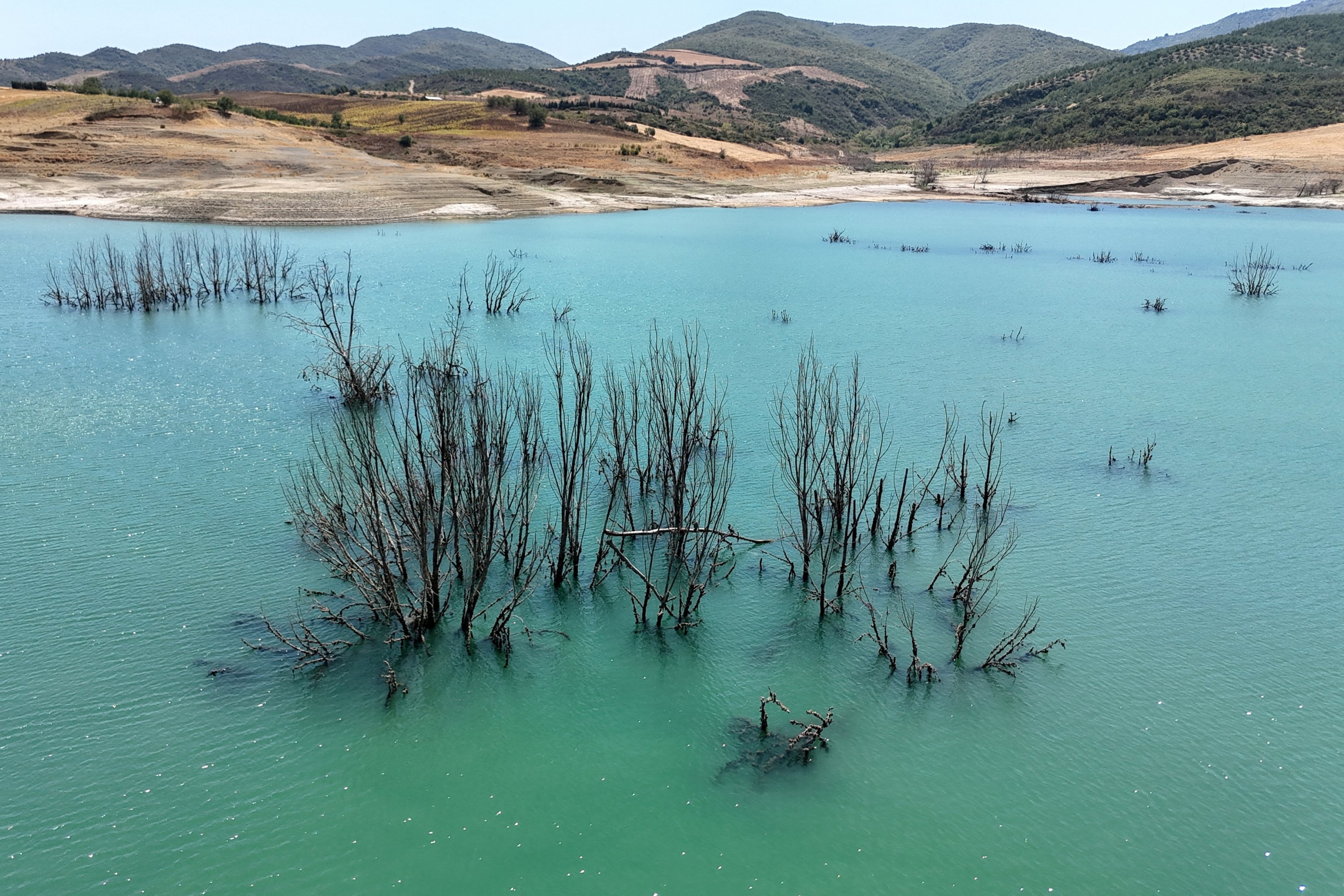
In the 10 months leading up to August, precipitation sank 32% in Marmara compared to the norm, while it fell 26% across Türkiye to the lowest in 52 years.
Alternatives
The water level in Tekirdağ’s Naip Dam, which has not seen any rainfall in June and July, fell to zero in August.
That has forced authorities to find alternatives like delivering irrigation water for domestic use and building a pump system for delivery into urban areas.
The dam’s water level was 21% this time last year, according to the State Hydraulic Works.
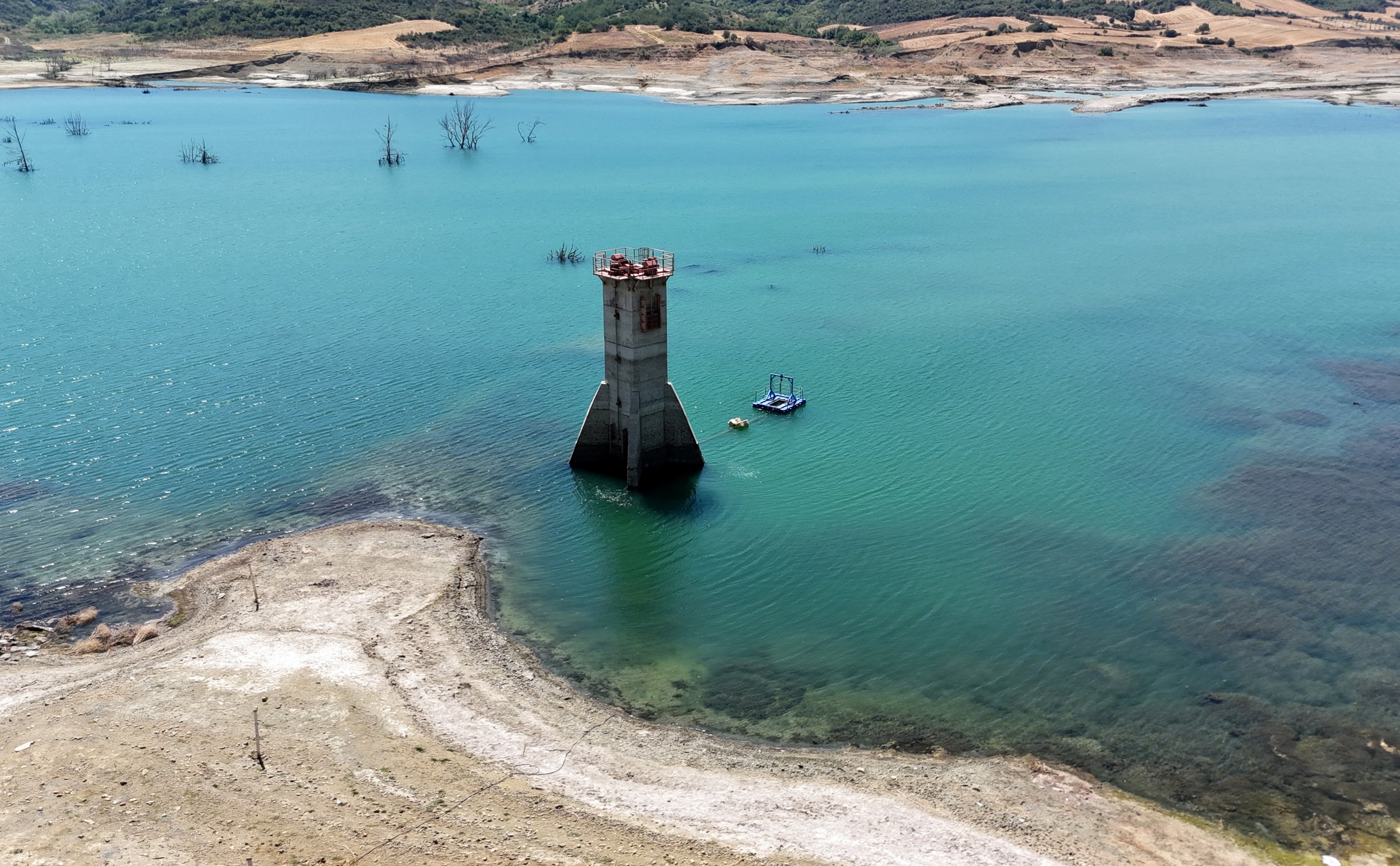
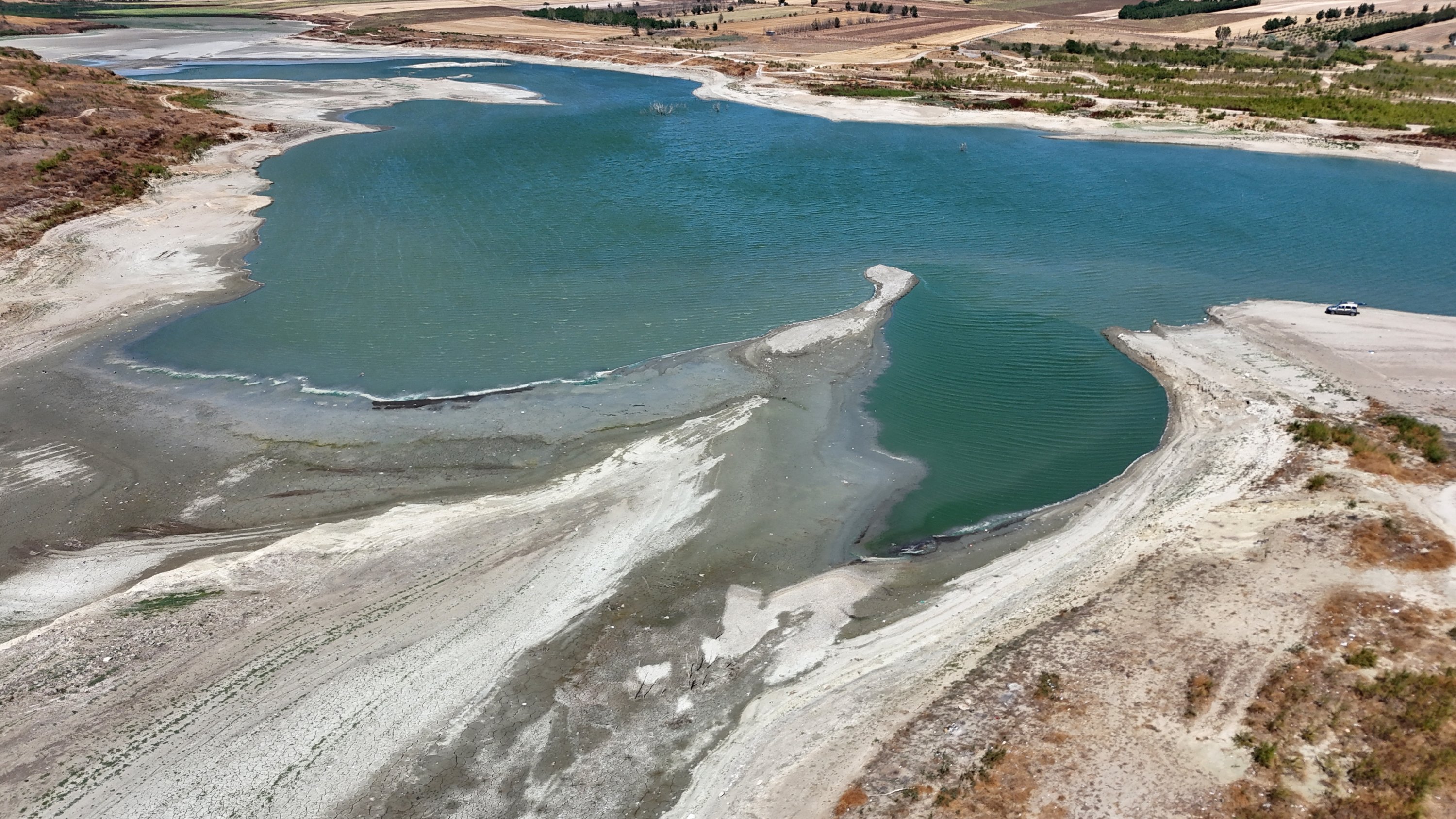
Mehmet Ali Şişmanlar, head of Tekirdağ’s Water and Sewerage Administration (TESKI), said rainfall in the province has reduced dramatically over the past decade, and severe drought over the last two years has spurred frequent water cuts in some areas this summer.
“We are the area and the province that has been affected the most by the drought in Türkiye,” he said, attributing it to climate change.
The water in the Türkmenli dam, usually used for irrigation, was used to supply water to Tekirdağ’s Marmaraereğlisi district, where some neighborhoods faced water cuts.
TESKI was working to open new wells to use groundwater, not usually a preferred measure, Şişmanlar said. He said groundwater had sunk to twice below its original depth over the years.
Mehmet, 70, a resident who lives in the Dereağzı neighborhood with his family, said their home has had no water for two months, leaving them unable to shower or perform chores, and they were fetching water from nearby areas in large bottles.
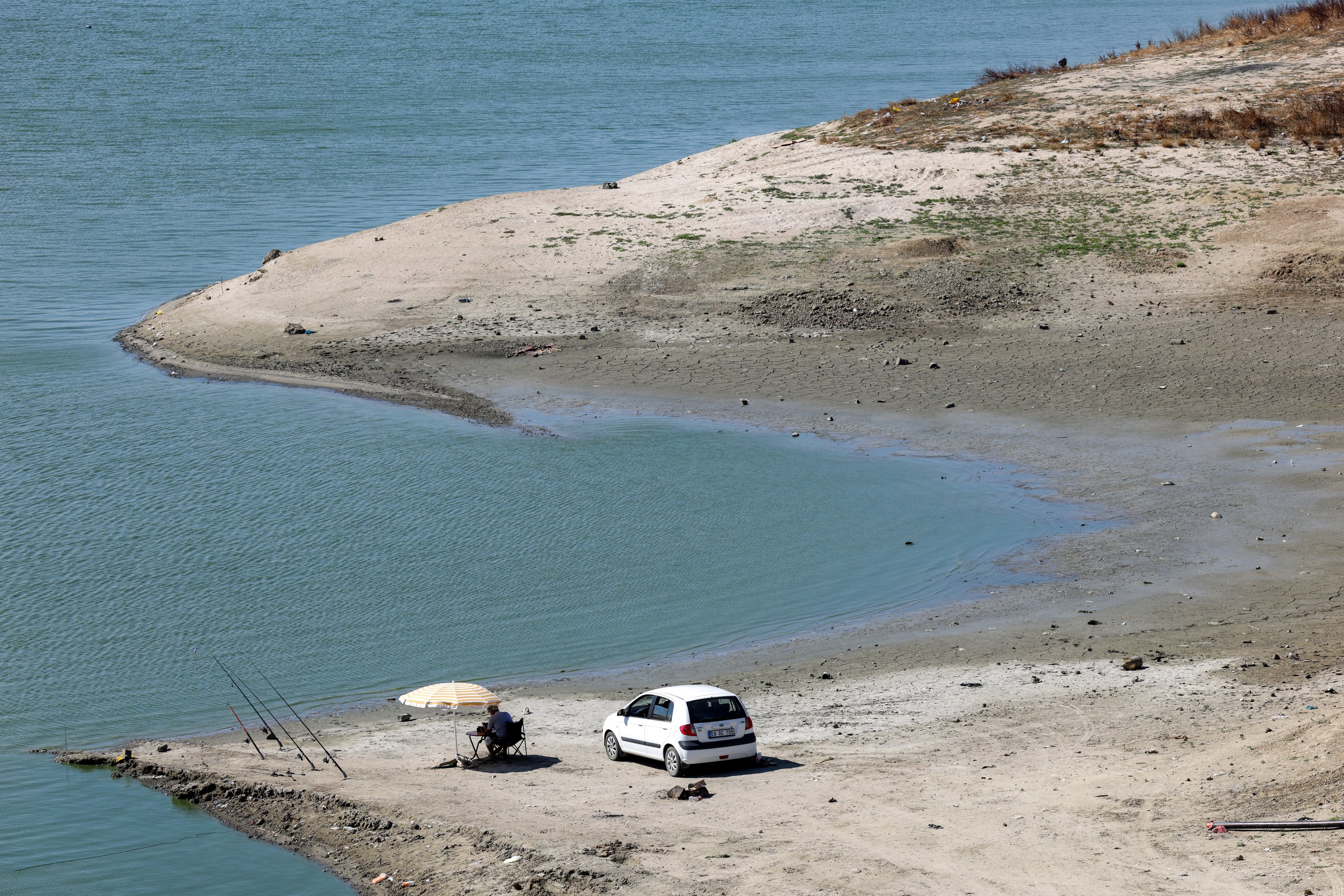
“I have been living in filth for the past two months,” he said, standing among dirty piles of dishes in the kitchen, and adding that he last showered when he went to Istanbul, around 130 kilometers (81 miles) away.
His wife, Fatma, 65, said the family stayed up at night to fill up bottles in case the water supply is resumed.
Remzi Karabaş, 71, said he takes his laundry to Istanbul to be washed, but is done with living in Tekirdağ.
“We’ll leave some day soon. What can we do here? Water does not flow at all.”
-

 Daily Agenda3 days ago
Daily Agenda3 days agoRed Bulletin 10 criminals sought at international and national level were caught
-

 Lifestyle3 days ago
Lifestyle3 days agoUNESCO site, ancient bridges put Türkiye’s Adıyaman on tourism map
-

 Economy3 days ago
Economy3 days agoAnalysts weigh risks as Trump slams Goldman on tariff forecasts
-

 Sports3 days ago
Sports3 days agoChimaev warns rivals with dominating UFC title win over du Plessis
-

 Politics3 days ago
Politics3 days ago‘Terror-free Türkiye aims to build shared future with entire society’
-

 Politics3 days ago
Politics3 days agoTürkiye slams Israel’s W. Bank plan as threat to peace, 2-state solution
-

 Sports3 days ago
Sports3 days agoMarquez extends MotoGP championship lead with 1st Austrian GP win
-

 Daily Agenda3 days ago
Daily Agenda3 days ago“90 minutes” response from the AK Party Bursalı: “Cemil Tugay broke the promise of election, cheated on Izmir”




